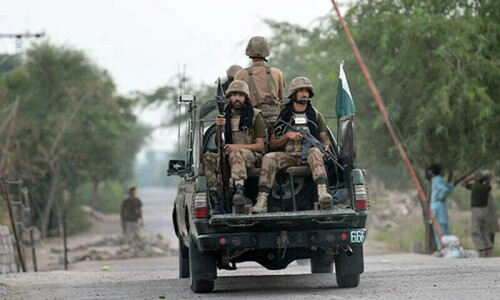MANILA: Suspected Abu Sayyaf gunmen have demanded more than $60 million for two Canadians and a Norwegian they are holding in the jungles of the southern Philippines in the largest ransom the Muslim militants have sought for their hostages in years.
Army Brig Gen Alan Arrojado said Wednesday the Philippine government maintains a no-ransom policy, adding there would be no let-up in efforts by his troops to secure the hostages' freedom in the safest way possible.
In the video circulated online by the US-based SITE Intelligence Group, which monitors jihadi websites, the kidnappers and their captives said for the first time that the Abu Sayyaf was behind the Sept. 21 kidnappings in an upscale marina on the southern resort island of Samal.
Examine: Indian escapes from al Qaeda-linked militants in S Philippines
In the first video of the hostages last month, the kidnappers demanded a stop to military offensives but did not identify themselves.
In the latest video, the hostages and one of the mostly masked kidnappers said a ransom of 1 billion pesos ($21 million) must be paid for each of the captives to secure their freedom.
The militant said the captives would be killed if the ransom was not paid but did not give any deadline.
One of the hostages, Canadian John Ridsdel, pleaded for Canada's prime minister and people to heed the ransom demand "as soon as possible or our lives are in great danger."
A militant, who did not wear a mask, pointed a knife at him and the two other captives as each of them spoke. A fourth female captive seized from Samal who has been identified by authorities as a Filipino citizen was not allowed to speak in the video.
The hostages were seen sitting on a clearing with the more than a dozen heavily-armed militants standing behind them. Two black flags were displayed in the background.
See: Two killed in Philippine grenade attack
Aside from Ridsdel, Philippine authorities have identified the other hostages as Canadian Robert Hall, Norwegian Kjartan Sekkingstad and Filipino national Maritess Flor. They were abducted at gunpoint from a yacht-berthing resort on Samal in Davao del Norte province in the south, scene of a decades-long Muslim rebellion in the largely Roman Catholic nation.
The United States and the Philippines have separately blacklisted the Abu Sayyaf as a terrorist organization for kidnappings, beheadings, extortion and bomb attacks. The Al Qaida-linked militants have been weakened but have survived more than a decade of US-backed offensives.
Following the Sept. 21 kidnappings, Philippine authorities vowed to strengthen security in the south. But three weeks later, gunmen abducted a former Italian Catholic missionary from his pizza restaurant in southern Zamboanga Sibugay province.
The abductions highlight the long-running security problems that have hounded the southern Philippines, a region with bountiful resources, but which also suffers from poverty, lawlessness and decades-long Muslim and communist insurgencies.
Also read: Abu Sayyaf kills seven Philippine soldiers: military














































Dear visitor, the comments section is undergoing an overhaul and will return soon.